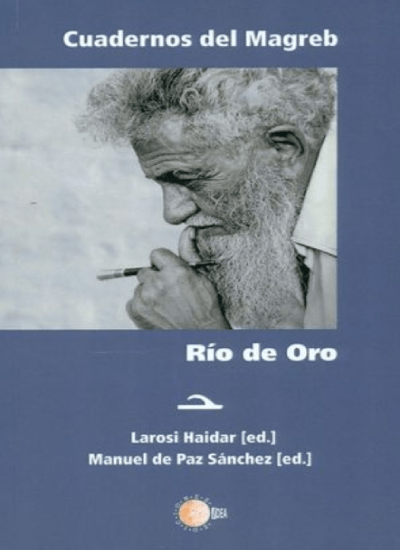In July 1894, Marine Infantry Lieutenant Joaquín España painted the following picture of the natives of the African coast: “They are a pain in the ass, demanding, vindictive, distrustful and cunning, very used to loitering, rape and crime. The most beautiful and cruel of thieves enjoys great renown among them. (…), men and women are united here only by the blind and immoderate instinct of passions, the consequences of which they are the only ones to bear when, exhausted by work and in charge of young children, they are abandoned by their husbands, who without scruple take a new wife, awaiting the same fate as the ex-spouse” (our translation).
The author of such a detailed physical and psychological description of the Saharawis at the end of the 19th century ended up advising those visiting these territories to follow the illustrative adage: Du Maure, ne te reliie pas 24 heures après sa mort. We assume that this procedure was by no means exclusive to Spanish authors of the time, but rather the discursive mechanism followed by the entire colonialist environment. It was clear that the justification of the colonial act, the occupation of the territory of the other, had to involve its demonisation and, above all, its dehumanisation; this would be done by creating a Sonderweg, a special path, characteristic of this new imprint that was to mark the neighbours on the other side, and which was none other than exoticism, its exoticization, in other words, making them again until they no longer recognised themselves. With this new image, and although it doesn’t look like it, they will be welcome because, as Kundera said of a character in Rabelais, ‘And here’s the curious thing: this coward, this lazy man, this liar, this presumptuous man, not only doesn’t provoke any indignation but, when he boasts, that’s when we love him the most’.

© 2018, Canaima Libreria
This same image, which is nothing more than a conversion of the other into a kind of contemptible buffoon in order to allow him to be accepted in a certain way, can even be seen in very late texts and even when only the author seems to want to offend, because he is merely ‘describing facts’. This is the case with the exquisite description given by González Álvarez of the whims and pastimes to which Jatri Yumani, the Sahrawi representative before the Spanish courts during the last years of the Spanish presence in Western Sahara, has very often been attributed: “His personal needs have always been minimal: to eat and to be able to marry once or twice a year (he is fifty-four years old and has fifty-six wives). The money he received from Spain enabled him to satisfy both aspirations, since the purchase of a wife did not cost him more than thirty thousand pesetas, because in the Sahara women are still bought, and in this field he likes the young, the adolescents, the almost black skins and the small meat starters. She doesn’t speak Spanish, she always applauds and gives a letter of nature to a particular smile”.
While the last sentence still resonates and its echoes are repeated in the four corners of the memory, it is inevitable not to remember the canon prescribed by Binyavanga Wainaina when venturing into writing about Africa, for we must not forget that the Sahara is in Africa. So one of the Kenyan writer’s recommendations is that when choosing our African characters, we should remember to include ‘corrupt politicians, travel guides and inept, polygamous prostitutes you’ve slept with’. The loyal servant still behaves like a 7 year old and needs a firm hand. It is obvious that when we inferiorise others, they end up inferior; when we dehumanise them, they end up being treated as ‘non-humans’, i.e. without any consideration or scruples of any kind: insulted and despised, humiliated, ignored and humiliated, but also beaten, tortured and murdered without the slightest trace of remorse, nor the faintest voice raised by such horrible acts. The only voice that must and can be heard is the one that underpins and reinforces the role of a hegemonic discourse whose ultimate aim is to take possession of the property, wealth and territories of the other.
- Title : Río de Oro
- Author : Haidar Larosi and Manuel De Paz Sanchez
- Editor : Éditions Idea
- Date of publication : September 2018
- Number of pages : 156
- ISBN : 978-84-17360-65-8
- Price : 14,95 €
